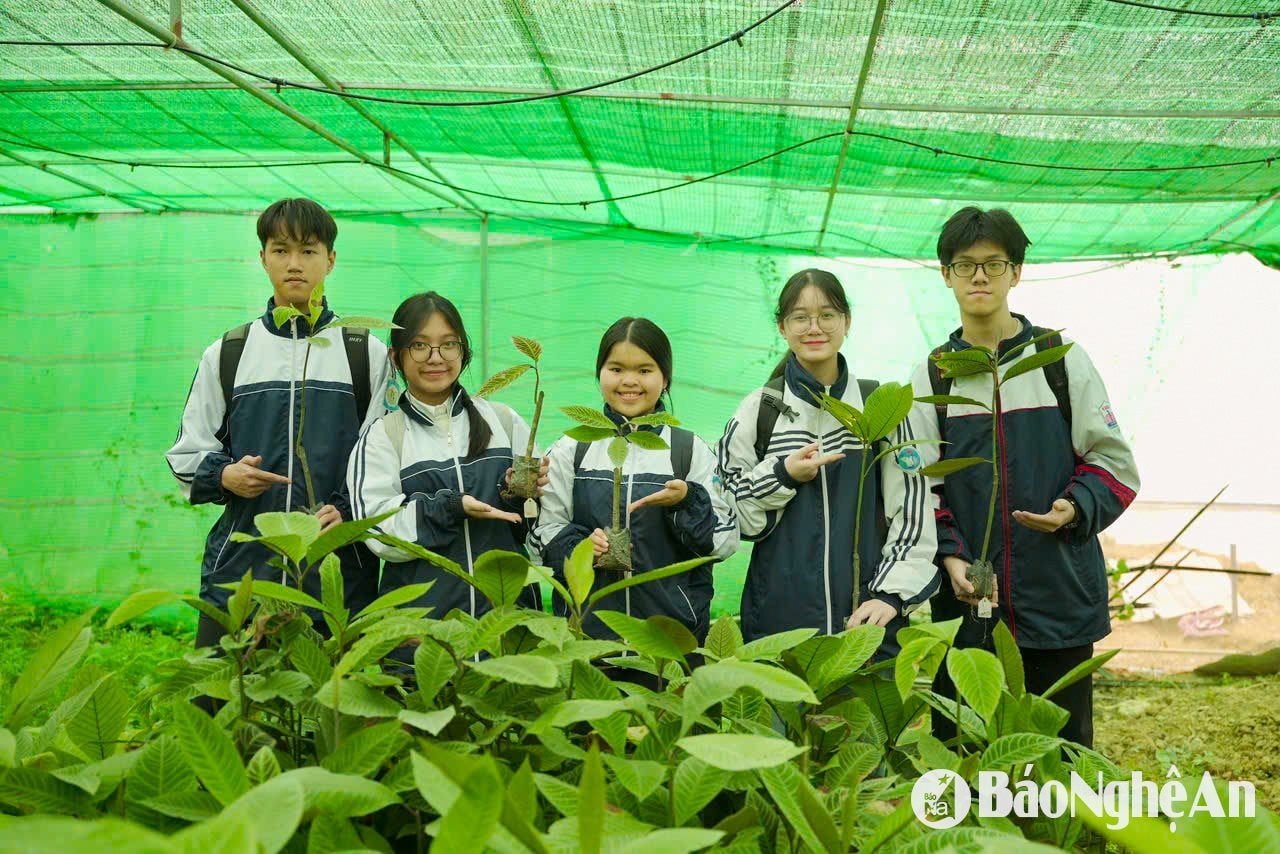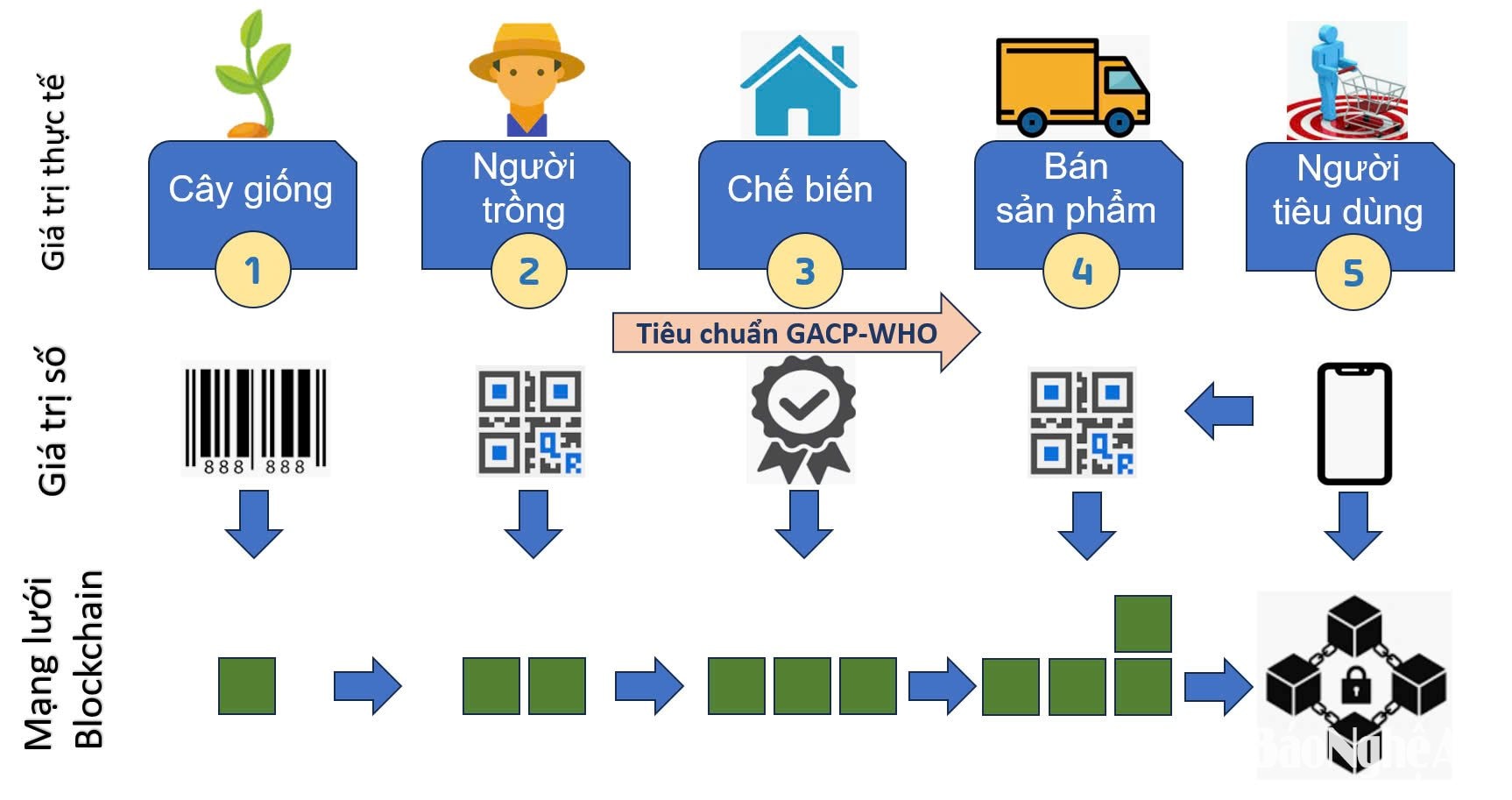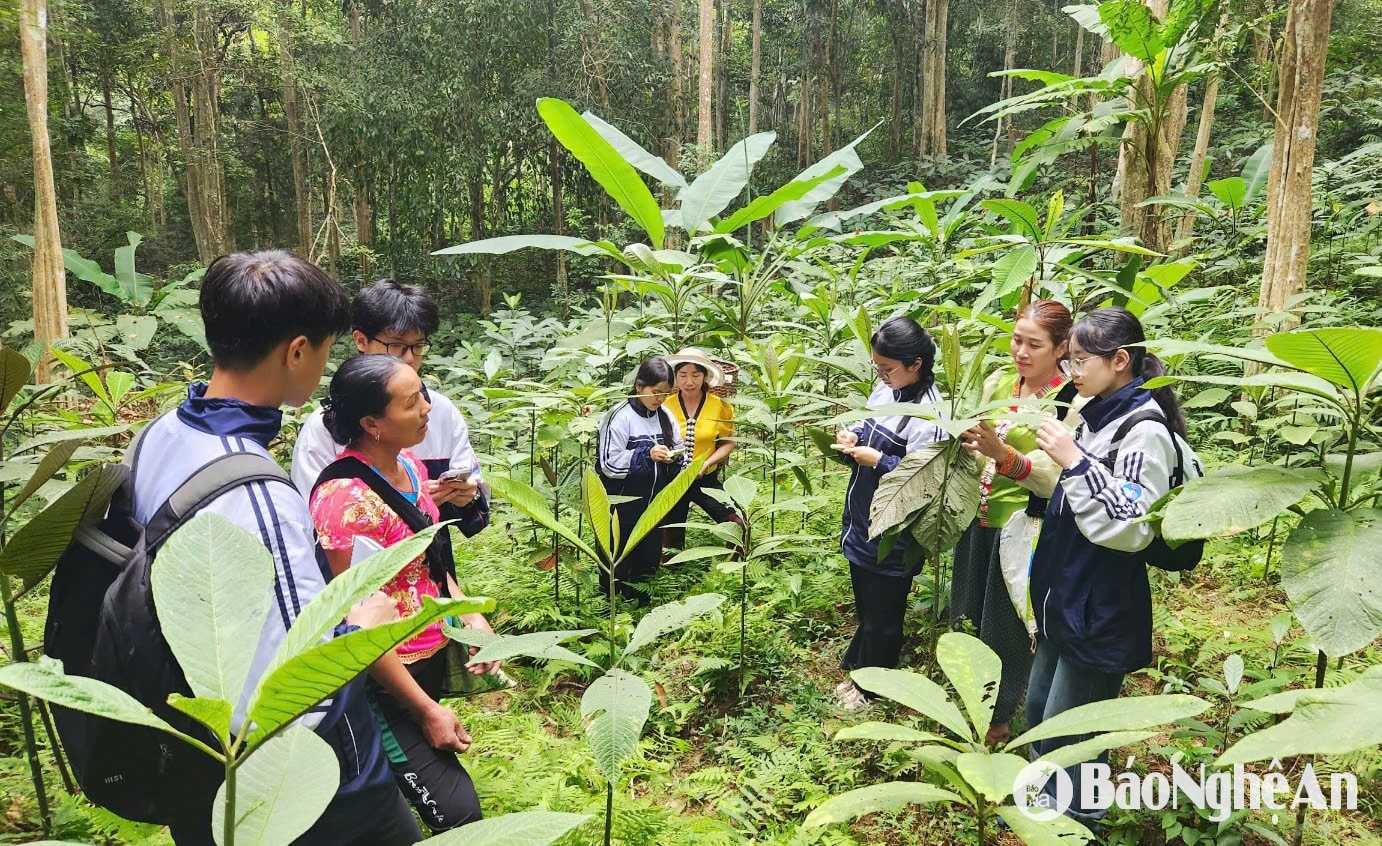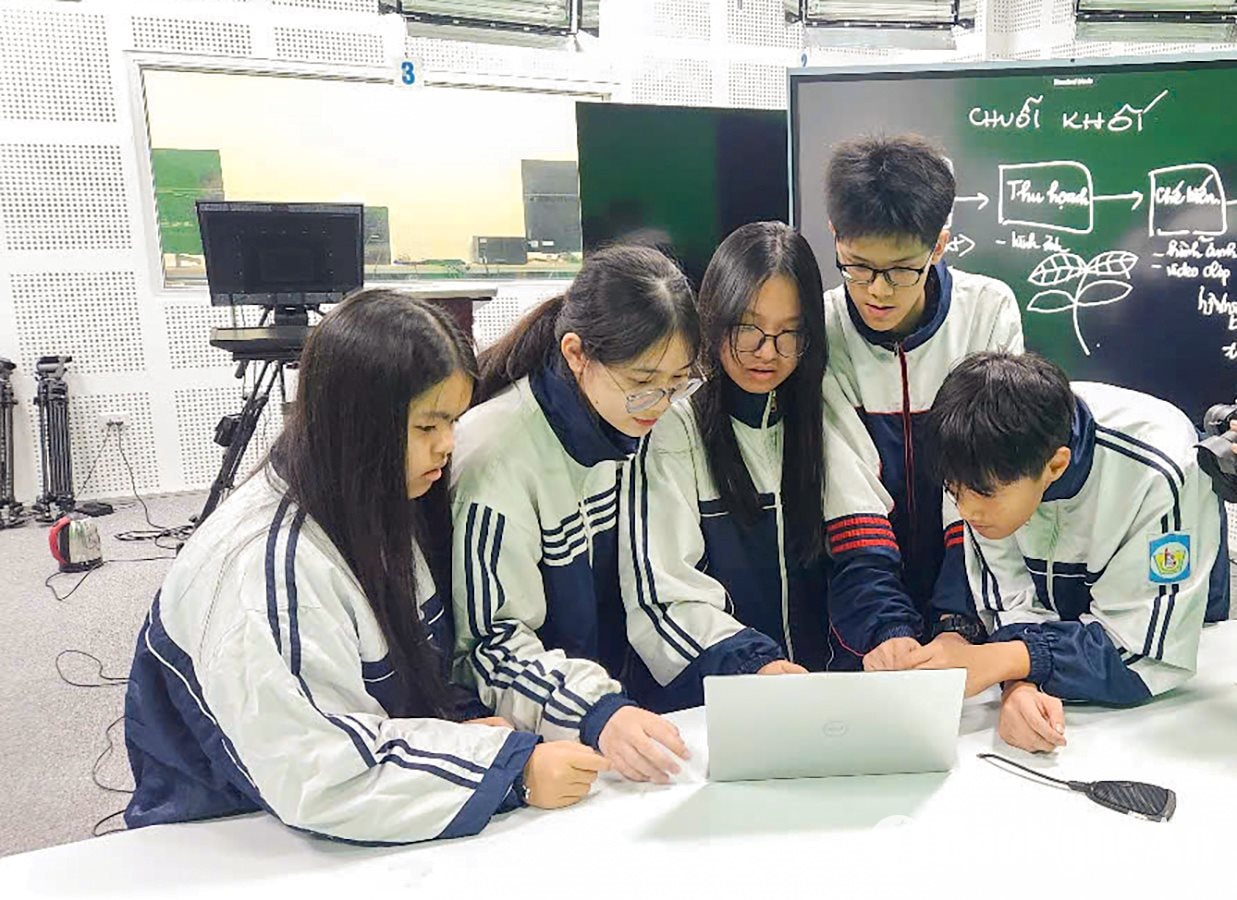Nghe An students apply technology to exploit medicinal potential under forest canopy
A group of Nghe An high school students have proposed applying Blockchain technology to the production and trading of medicinal herbs under the canopy of natural forests. This startup idea promises not only to increase the value of products but also to support sustainable livelihoods for ethnic minorities.
From idea to reality
Starting from purple velvet trees planted under the forest canopy in Coc village, Yen Hoa commune, Tuong Duong district, Nghe An province, a group of students including Nguyen Lam Nhat Minh (Vinh University High School for the Gifted), Le Thi Diep Chi (Le Viet Thuat High School), Le Doan Thai, Nguyen Gia Nhu, Nguyen Tran Mai Phuong (Phan Boi Chau High School for the Gifted) have realized a bold idea: applying Blockchain to trace the origin of medicinal herbs.

The BL4NSP project (Blockchain for Natural Sub-canopy Plants and Sustainable Livelihoods) was born from concerns about the lack of transparency in the origin of many Vietnamese medicinal products, affecting their quality and commercial value. Along with that, the potential of medicinal plants under the natural forest canopy in the mountainous areas of Nghe An has not been effectively exploited. Meanwhile, the problem of forest protection and sustainable livelihood development for ethnic minority communities remains a big challenge.
The group proposed to build a Blockchain platform to help store the entire process of medicinal herb production from breeding, growing, harvesting to processing. Thanks to that, all information about the product is clearly recorded and cannot be forged. Consumers and businesses can easily check the origin of medicinal herbs through this system.

Under the guidance of experts from Vinh University and the support of the Department of Science and Technology of Nghe An, the Department of Education and Training, the group has gradually realized the idea. The purple velvet tree was chosen as the first experimental product, deployed in Coc village, Yen Hoa commune, Tuong Duong district. The group has built a breeding, planting and care process according to GACP-WHO standards (good practice standards for cultivation and collection of medicinal herbs of the World Health Organization), ensuring the quality of medicinal herbs. More than 20 people, mainly Thai ethnic women, were trained and directly participated in production, both increasing their income and contributing to protecting natural forests. Information about the production process, ecological, cultural and social factors is also integrated on the Blockchain platform, helping to increase product value.
Sharing about the project, Nguyen Lam Nhat Minh said: "Before implementing, we conducted many surveys in scattered medicinal herb growing areas in Tuong Duong district, directly witnessing the difficulties and hardships in the lives of people here. We want to prove that technology is not only for big cities but can also create positive changes for people in remote areas. If we can clarify the origin and increase the value of products, people will have the opportunity to improve their sustainable livelihoods without having to trade off deforestation."

Nguyen Gia Nhu, another member of the group, also expressed pride: "Implementing the project was not simple. We had to approach people, explain the benefits of Blockchain and guide them to record production data. At first, there was hesitation, but when we saw that our products would be certified transparent and sold at a higher price, everyone was very excited."
Stepping forward in the startup arena
The BL4NSP project has successfully entered the final round of the contest "Students with ideas"start-up"The seventh time organized by the Ministry of Education and Training.
At first, the students were quite confused, but with perseverance and creativity, they have completed a potential model. If they continue to develop, the project can be expanded to other medicinal herbs and replicated in many localities.
Dr. Le Quang Vuong - Lecturer at Vinh University, project supervisor
The project has a harmonious combination of modern technology and indigenous knowledge. The participation of local people, especially Thai ethnic women, not only helps them earn more income but also enhances their role in the community. Ms. Kha Thi Nga, a resident participating in the project, shared: "Previously, we harvested medicinal plants but did not know how to sell them at a good price. Thanks to the project, I was guided to grow according to standards, harvest properly and know that my medicinal plants can reach buyers in a transparent manner. I really hope that the project will expand further."

However, the project also encountered many difficulties. The application of Blockchain in agriculture is still new, requiring guidance and investment in technology infrastructure. In addition, to expand production, the group needs to call for more capital from investors and non-governmental organizations.
However, the group remains optimistic about the project's future. Team leader Nguyen Lam Nhat Minh shared: "Currently, we have tested the Blockchain system on a small area. If we have more investment, we can develop a mobile application to help people update production data more easily. With support from investors and the government, this model can be replicated, helping many people escape poverty sustainably."
Originating from the idea of a group of high school students, BL4NSP promises to become a model in combining technology with sustainable development. According to Ms. Tran Thi Mai Huong - Officer of Nghe An Department of Science and Technology, who is accompanying and guiding the project, this model is not only limited to medicinal herbs but also has the potential to expand to other agricultural products, applying Blockchain in the agricultural sector. Socially, the project contributes to creating stable jobs, improving livelihoods for ethnic minority women, and improving production and management skills for local communities. In addition, the project also helps protect natural forests, minimize the impact of climate change and raise awareness of social responsibility. With the potential for replication, BL4NSP not only promotes economic development but also creates sustainable social and environmental values.


